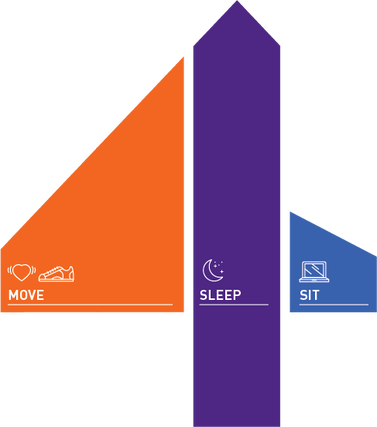Being active is an important aspect of children’s development. Movement helps with healthy growth and motor development. It also increases children's learning and self-esteem.
Kids should do a variety of movements and activities during the day.
Kids should do a variety of movements and activities during the day.
|
Canadian 24-Hour Movement Guidelines: The Early Years A healthy 24 hours includes physical activity, sedentary behaviour, healthy eating, and sleep: Move More
Sit Less
|
What is floor-based play for infants? It can be as simple as crawling around the house. It can also be playing with toys on the ground or reaching to grab objects.
Here are some examples of energetic play for children:
Here are some examples of energetic play for children:
- Playing outside
- Running
- Dancing
- Swimming
- Biking
- Scooter riding
- Etc.

